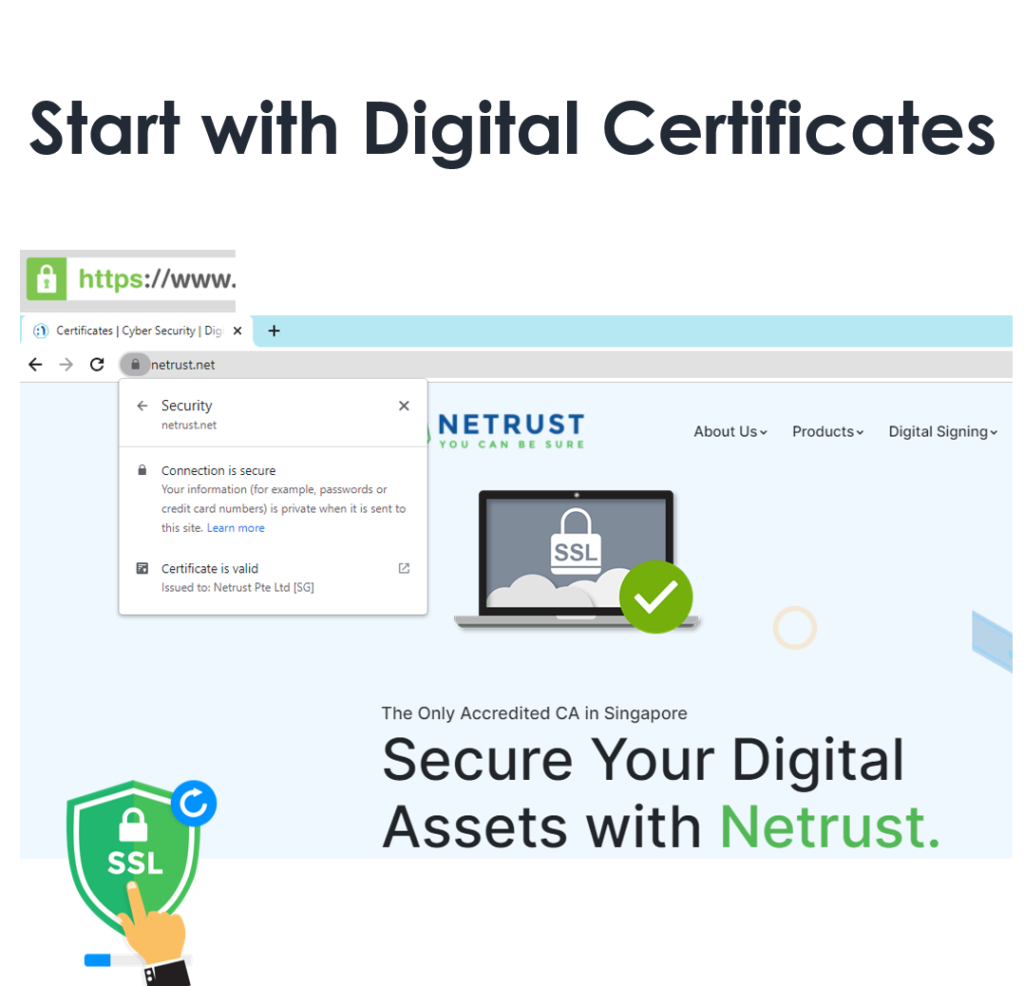[vc_row][vc_column][vc_column_text]We are living in a fast-paced world and it became even faster when Covid-19 struck. The priorities of the organizations shifted from improving internal IT security to empowering remote workforce while ensuring that the networks they are working on are secured and well protected. For business leaders, crisis response to the Covid-19 encompasses all aspects of risk management, business continuity, vendor risks, compliance, employee health and safety, to name a few.[/vc_column_text]
[vc_column_text]With the increase in remote work, many industries have recognized the importance of investing in cybersecurity. In the same way that we wear masks to protect ourselves against the virus, organizations have to put on “masks” on their network, websites and applications to ensure that their systems are well protected from unknown threats and vulnerabilities. Despite the decreasing revenues and budget cuts in the industries hit hardest by the pandemic, cybersecurity has become a priority for companies across industries.[/vc_column_text]
[vc_column_text]Many offline retailers across the world are focusing on expanding their business through e-commerce platforms. This has led to an increase in the number of online transactions worldwide. Online transactions on e-commerce platforms require users to share their personal information such as name, contact number, and debit or credit card details. Hence, to secure customer information, e-commerce platform companies must use SSL certificates. Also, the growing popularity of mobile wallet payments has compelled e-commerce companies to use EV SSL certification to ensure secure transactions.[/vc_column_text]
[vc_column_text]On top of that, gone are the days where users have to own and lug around a physical cryptographic tokens just for the sake of being able to perform Digital Signatures. Your mobile phone is now able to double as your personal cryptographic hardware to facilitate any Digital Signature transactions.[/vc_column_text]
[vc_column_text]There are different types of SSL certificates, Extended Validation (EV), Organization Validated (OV), and Domain Validated (DV). With the recent changes on how EV SSL certificates appear on the major browsers (Google Chrome and Mozilla Firefox) some would agree that they are all the same regardless. And yes, they all have the same purpose; however, they vary on how strict the processes are to verify the identity and authorization of the applicant.[/vc_column_text]
[vc_column_text]Here are some reasons why EV SSL Certificates are different from the rest:
- EV is used by major anti-phishing services to determine safe websites. Brands with EV will still be treated as more trustworthy by browser filters.
- Organizations that have EV are well positioned for forthcoming regulations in the EU that put identity at the forefront of digital security. Regulations for PSD2 compliance will require financial service providers to secure transactions and open banking APIs with a Qualified Website Certificate (QWAC), which is built upon the foundation of EV certificates.
- Most browsers are still using EV indicators. Google and Mozilla continue to use them as well. The changes will require user action to view the details provided by EV certificates.
- EV provides the highest form of identity assurance for SSL certificates and identity provides the foundation for security.
- Users will be able to easily determine who they are transacting with.
- EV is recognized and used as a best practice for identity verification.[/vc_column_text][vc_column_text]
EV SSL Certificates Use Cases:
- Phishing sites impersonating legitimate organizations and businesses is a major threat to users and online services and is one of the key vectors for stealing or compromising sensitive and personal data. It is quite impossible for criminals to obtain EV certificates for phishing sites due to the many levels of verification required prior to the issuance of an EV certificate.
- Rogue and phishing websites are a growing problem and emphasize the need for strong online identity verification. Visitors need reasonable assurance of the identity of the business they are dealing with, to build and maintain trust with that business and feel safer conducting online transactions. EV certificates can protect business customers from falling victims to phishing attacks by displaying the site operator’s verified identity directly in the certificate.
- Apart from the protection against phishing, EV certificates are a great way to showcase compliance with security and privacy requirements enacted in various regulations, laws, and acts. HIPAA, PCI DSS, and GDPR require that companies protect their customer’s medical, financial and personal data against breaches. EV certificates can help businesses ensure a successful audit against these requirements. [/vc_column_text][vc_column_text]
Despite the above benefits, EV certificates are not for everyone. It is a worthwhile investment getting an Extended Validation if you’re an established enterprise or an institution with a good reputation. In fact, any website collecting data, processing logins, or online payments can benefit from displaying their verified brand identity.[/vc_column_text]
[vc_column_text]In spite of the controversial removal of the green address bar on both Chrome and Firefox, the EV SSL certificate continues to provide the highest level of online identity assurance and customer trust, and one of the best defenses against ongoing phishing attacks. It still remains to have the best indicator of an authentic business operating in good faith.[/vc_column_text]
[vc_column_text]Should you have any further queries regarding SSL Certificates, please email our sales team at sales@netrust.net.[/vc_column_text][vc_column_text]
